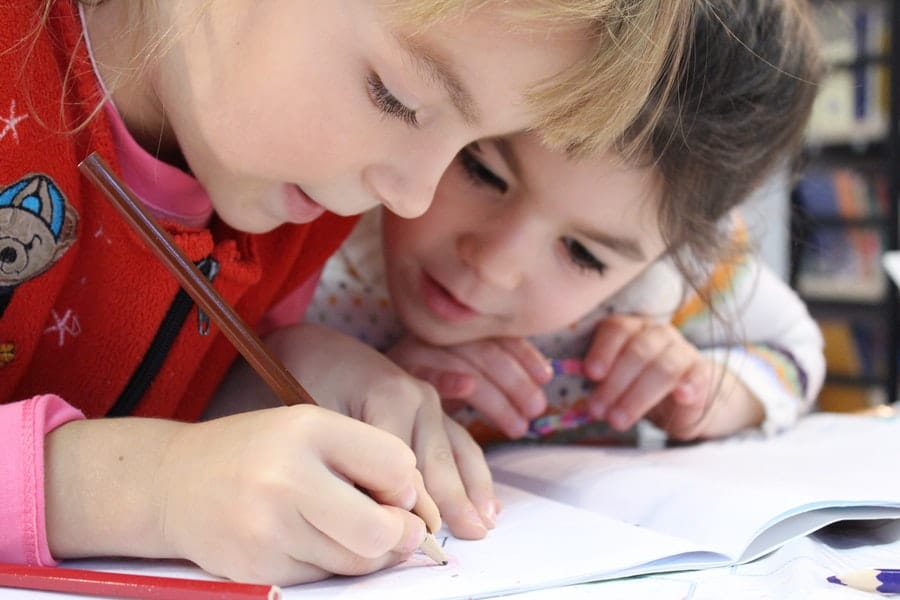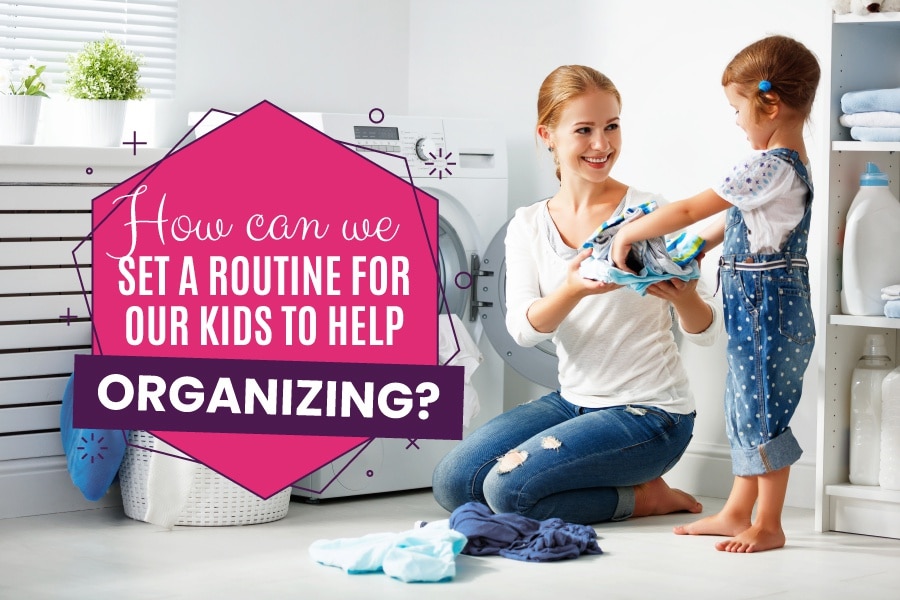Kids need to be taught early that organizing is their responsibility, too. Not only does it help keep down the household clutter, but it also reduces the chances that they’ll have difficulties as adults! Still, kids can be difficult to manage, and it’s hard to manage your children on top of your work, family, and social life.
Here are some tips for creating a routine that encourages kids to help.
1. Create a Visible Chore List
It’s hard for children to track what needs to be done, especially if they aren’t accustomed to it. If you create a visible list of chores that need to be completed, it’ll be easier. You can consider:
- Putting a list of chores on the refrigerator.
- Having a dry erase board or chalk board on your family room wall.
- Putting a lit of chores in each room, on the wall.
- Creating a shared calendar in everyone’s smartphone (for older children).
The easier you make it for your children to track the chores, the more likely your children will actually do them. This also means that you can see at a glance what things still need to be done.
2. Make It a Habit to Clean Up After Activities

The house won’t get messy and disorganized if it’s never given the opportunity to do so. Instead of letting messes sit, make it a habit for children to clean everything up when they’re done. Don’t let dishes sit: clean up after dinner. Don’t let toys sit out: clean up after they’re used.
By making it a habit to clean up after activities, you can reduce the amount of general clutter in your home. A lot of clutter can get overwhelming — not just for you, but also for your children. It’s difficult to know where to start when everything is everywhere.
3. Color Code Items and Invest in Organizational Tools
Cubbies are a great organizational tool for kids, as is color coding and labeling. Often, kids don’t organize because they aren’t really sure where things should go, and trying to figure it out feels like an insurmountable task. By making it very clear where everything needs to be stored, you can make the process easier on them and you.
4. Turn Chores Into Family Time

Rather than having your child clean their room, instead clean the entire house with your child, including their room. Chores can be valuable family time if done right, which shows your children that chores aren’t something to be avoided, but rather embraced.
With the entire family working together, chores become much easier, and they become quality time that you can spend together. You’ll be able to teach your children more effective ways of getting things done, and the entire task will be done faster.
5. Learn Which Chores Your Children Enjoy
Some children prefer washing dishes or mopping, while other children prefer organizing or doing laundry. During your family house cleaning, try to focus on the chores that children like the most. Make sure that children rotate through chores enough to discover what they enjoy.
In many families, chores become delineated by gender — boys mow the lawn or take out the trash, girls do the laundry and wash dishes. But that means girls may never learn to mow a lawn or take out the trash, and boys may never learn how to do laundry or wash dishes.
By letting children explore different chores, you can hone in on the ones that they like. Of course, it can’t all be about what they enjoy, but more difficult or annoying tasks can be tackled together.
6. Prepare for School and Weekends the Night Before

The time to get organized isn’t when other things need to be done. To avoid hectic mornings, make sure that you prepare for school and weekend activities the night before. Engage your children in this, and they’ll never pack last minute for anything again.
During this time, you can even have your children help you prepare their lunches, and learn about the things that they prefer. Let your children take over packing, selecting their outfits, and choosing their food (within reason), and you can foster their independence in a low risk way.
It’s important for children to recognize that chores aren’t a “punishment” — they’re necessary for the entire family. Though it may take some time to establish a routine, once you have a routine down, it’s going to become much easier. For more organizing tips, check out the Get Organized Wizard.


Teaching kids the importance of organization from a young age is a valuable investment in their future. These tips are golden nuggets for fostering a sense of responsibility and tidiness in children. Creating visible chore lists and turning clean-up into a habit not only keeps the clutter at bay but also empowers them to manage their space effectively. Color coding and organizational tools add a fun element to the process, making it easier for kids to grasp. Transforming chores into family bonding time not only completes tasks faster but also imparts teamwork skills. Discovering preferred chores and involving them in prepping for school and weekends contributes to their independence and organized mindset. Ultimately, teaching that organization is a family value sets the stage for lifelong success. Thank you for sharing these insightful tips!
Creating a list would be nice, and was thinking about making it a drawing since she doesn’t know how to read exactly yet. You just gave me the idea! Great blog to be exact.